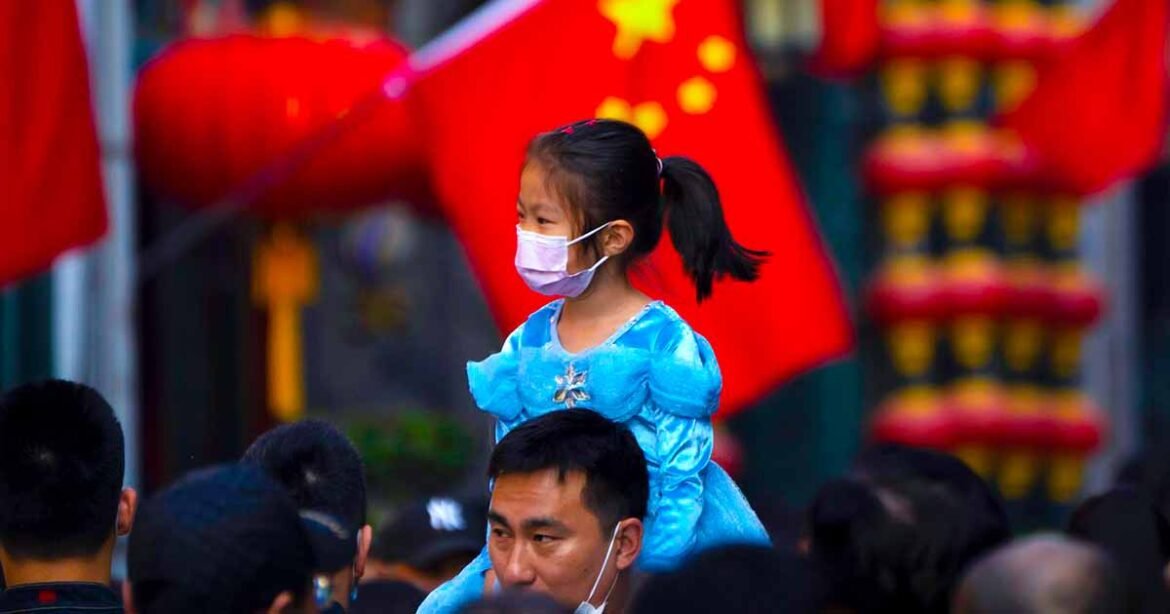Last year, China’s population has fallen for the first time since the 1960s, according to the National Bureau of Statistics (NBS). Figures show that China’s population stood at 1.411 billion in 2022, down by about 850,000 people from the previous year. The decline in population is a significant concern for China, which has long prided itself on being the world’s most populous country. It may also mean that China is one step closer to losing its place as the world’s most populous country to India, which is expected to surpass China’s population by 2027.
YOU CAN ALSO READ: WHY DON’T MALAYSIAN POLICYMAKERS VIEW CHINA AS A THREAT?
The last time China’s population decreased was in 1961, during a devastating famine that claimed the lives of tens of millions of people. The current decline in population, however, is not attributed to a catastrophe but rather to a combination of factors such as low birth rates, an aging population, and the government’s strict family planning policies, including the famous one-child policy that was introduced in 1979 and lasted until 2015.
Aging population problem in China
China’s aging population and a shrinking workforce pose major challenges to the country’s economic growth and social stability. An aging population means a smaller workforce and less economic growth, as fewer people are able to work and contribute to the economy. The government has tried to address these challenges by relaxing its family planning policies in recent years, including allowing couples to have two children since 2015.
However, it appears that these policies have not had a significant impact on the country’s population growth. According to experts, there are still significant cultural and economic barriers to having more children, such as high housing costs, long working hours, and a lack of childcare support. “The population decline is a warning that the country must shift from its out-dated family planning policies to more comprehensive policies that address the diverse needs of families,” said Wang Feng, a demographer and professor of sociology at the University of California, Irvine.
The decline in China’s population could have far-reaching implications not just for the country but for the global economy as well. China has been a major driver of global economic growth over the past few decades, and a declining population could mean a significant slowdown in China’s economic growth, which could in turn affect global markets.
Abhorrence with marriage!
A recent survey conducted by China’s Communist Youth League of nearly 3,000 people aged between 18 and 26 has found that over 40% of young women living in cities have no plans to marry. This percentage is significantly higher than the less than 25% of men who responded the same way. The reasons for this trend are attributed to rising childcare costs and the long-lasting effects of China’s one-child policy.
According to Yi Fuxian, a senior scientist in obstetrics and gynaecology at the University of Wisconsin-Madison and a vocal critic of the one-child policy, “having just one child or no children has become the social norm in China.” The policy, which was implemented in 1979 to control population growth, led to a significant decline in birth rates but also caused social and economic problems such as gender imbalance, an aging population, and rising childcare costs.
The survey results indicate that the consequences of the one-child policy are still being felt by young people in China today. The rising costs of raising a child, coupled with the social and cultural changes brought about by the policy, have resulted in many young urban women opting out of marriage altogether.
Experts suggest that this trend could have serious implications for China’s future population growth and workforce. As such, there have been calls for the government to address the issue by implementing policies that encourage young people to start families, such as increasing maternity leave and childcare subsidies.
Future workforce is in threat!
Currently, China’s working-age population, aged between 16 and 59, stands at around 875 million. They account for a little over 60% of the country’s population. However, according to an official estimate by the government in 2021, over the next five years, the figure is expected to fall further, by another 35 million.
This demographic shift is expected to have significant economic implications for China. As the working-age population continues to shrink, there will be fewer people available to support the country’s rapidly growing elderly population. This, in turn, will put pressure on the state’s pension and healthcare systems.
Yi Fuxian further added, “In 2018, China’s demographic structure was similar to that of Japan’s in 1992.” “And China’s [demographic structure] in 2040 will be similar to Japan’s in 2020.” The comparison to Japan is worrying, as it has one of the oldest populations in the world, which has led to economic and social challenges.
The current retirement age for men and women in China is 60 and 55, respectively, and the number of retirees has already exceeded the number of contributors to the pension fund, leading to a decrease in contributions since 2014.
China’s workforce is already shrinking, and an aging population will exacerbate the situation. The country’s demographic structure is expected to worsen over the next decade, leading to economic slowdowns and a lack of support for retirees. Experts predict that China’s growth may not surpass that of the US by the end of the decade, which would cap the country’s extraordinary economic ascent.


